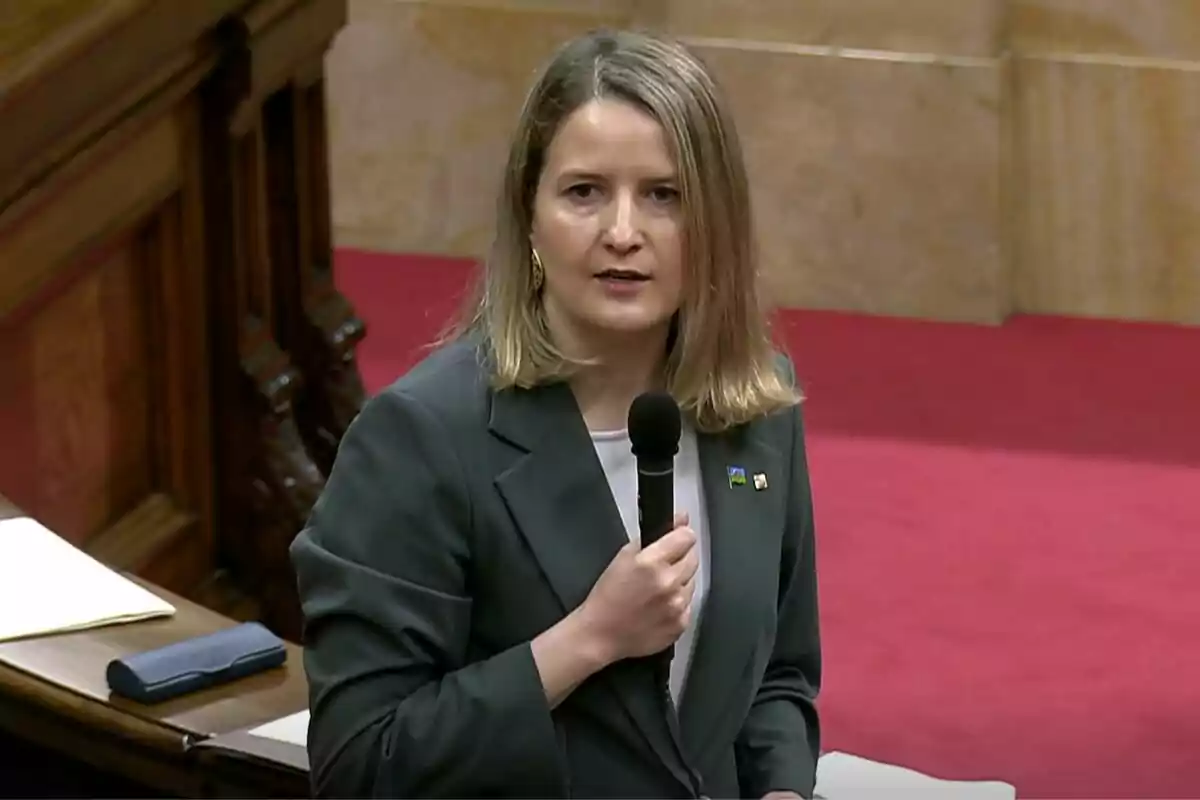
Spain and Catalonia, contrary to the EU on illegal immigration
The countries of the union are tightening asylum conditions while here regularization is being facilitated
This week, the central government announced its intention to regularize 200,000 immigrants in Catalonia over the next two years. It will be thanks to the entry into force next Tuesday of the new Immigration Regulation. The Minister of Social Rights and Inclusion of the Generalitat, Mónica Martínez Bravo, has highlighted a "more just and inclusive" immigration model.
The announcement is part of President Pedro Sánchez's government's ambitious plan to massively regularize illegal immigrants. The government itself promoted the legalization of half a million immigrants residing irregularly in Spain.

It is therefore part of a conscious strategy of this government, influenced in these matters by Sumar, ERC, and Bildu. Other parties with more reservations about immigration, such as Junts and PP, did not oppose it. In fact, the only party that voted against it in the Congress of Deputies was Vox.
The debate confronted two opposing positions. Those who defend regularization as the fulfillment of human and labor rights, and who see immigration as necessary and positive. On the contrary, those who fear a pull effect that will further complicate the migration crisis and the collapse of services.
What is evident is that Spain and Catalonia are an exception in the current trend of neighboring countries. While the EU is making a shift forced by the migration crisis, the Spanish government facilitates the massive regularization of foreigners.
the EU tightens its position on immigration
The new EU Migration and Asylum Pact, approved last year, marked a radical shift in the union's migration policies. After the failed open borders experiment, even the most progressive European countries have changed their strategy. They have tightened both the conditions for entering the country and for applying for asylum and regularizing their legal status.

Countries that were pioneers of welcoming refugees, such as Sweden, Germany, and Denmark, now lead the closing of borders. In many union countries, solutions are being implemented to curb the entry of immigrants. Deportations are being accelerated, and the required residency time to obtain papers has been extended.
Not only the right, but also social democratic leaders are recognizing the migration collapse and the security threat. European leaders, in the face of the rise of identity options, have also made a pragmatic shift with immigration.
spain and catalonia, the other way around
Since 2023, Spain has been breaking records for the arrival of illegal immigrants on Spanish coasts, and this year is on the same path. This is straining the autonomous communities. Among them Catalonia, one of the regions that absorbs the most illegal immigration.
Despite the challenge this poses to security and the imbalance it creates in resources and public services, governments continue to take no action. On the contrary, they continue to encourage immigration by proclaiming its benefits. Unlike the rest of the neighboring countries, they relax the conditions of entry and access to regularization.
The left argues that immigration is necessary to offset the negative balance of native birth rates and to strengthen the labor market. They say it will have a positive effect on the welfare state and the pension fund.
Opposing sectors claim that massive illegal immigration disrupts the labor market balance and devalues wages. Additionally, recent studies show that immigrants cost more money than they contribute. It is also not certain that they will pay pensions, because only 20% have a positive fiscal balance throughout their lives.
More posts: